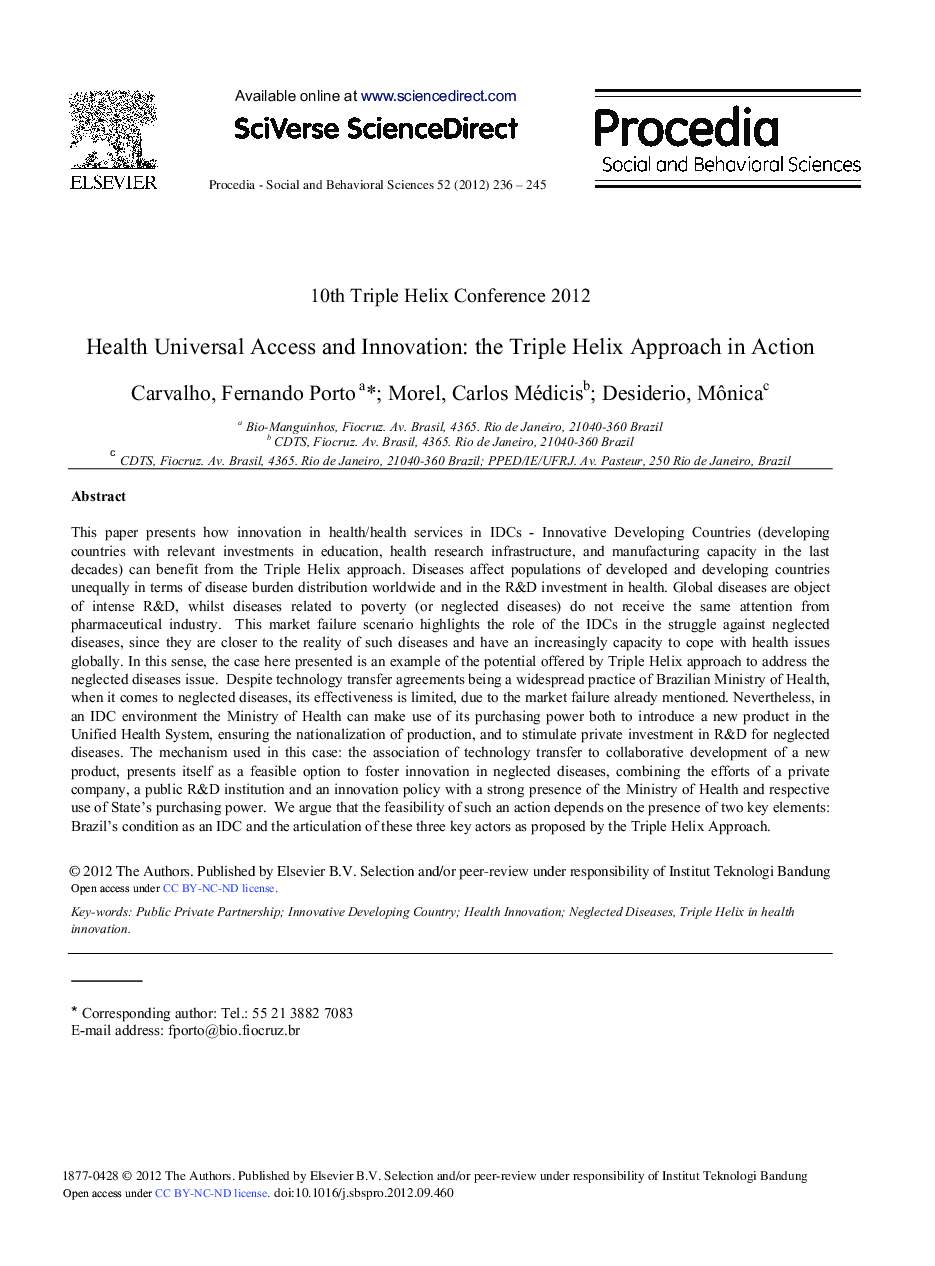| Article ID | Journal | Published Year | Pages | File Type |
|---|---|---|---|---|
| 1120639 | Procedia - Social and Behavioral Sciences | 2012 | 10 Pages |
This paper presents how innovation in health/health services in IDCs - Innovative Developing Countries (developing countries with relevant investments in education, health research infrastructure, and manufacturing capacity in the last decades) can benefit from the Triple Helix approach. Diseases affect populations of developed and developing countries unequally in terms of disease burden distribution worldwide and in the R&D investment in health. Global diseases are object of intense R&D, whilst diseases related to poverty (or neglected diseases) do not receive the same attention from pharmaceutical industry. This market failure scenario highlights the role of the IDCs in the struggle against neglected diseases, since they are closer to the reality of such diseases and have an increasingly capacity to cope with health issues globally. In this sense, the case here presented is an example of the potential offered by Triple Helix approach to address the neglected diseases issue. Despite technology transfer agreements being a widespread practice of Brazilian Ministry of Health, when it comes to neglected diseases, its effectiveness is limited, due to the market failure already mentioned. Nevertheless, in an IDC environment the Ministry of Health can make use of its purchasing power both to introduce a new product in the Unified Health System, ensuring the nationalization of production, and to stimulate private investment in R&D for neglected diseases. The mechanism used in this case: the association of technology transfer to collaborative development of a new product, presents itself as a feasible option to foster innovation in neglected diseases, combining the efforts of a private company, a public R&D institution and an innovation policy with a strong presence of the Ministry of Health and respective use of State's purchasing power. We argue that the feasibility of such an action depends on the presence of two key elements: Brazil's condition as an IDC and the articulation of these three key actors as proposed by the Triple Helix Approach.
